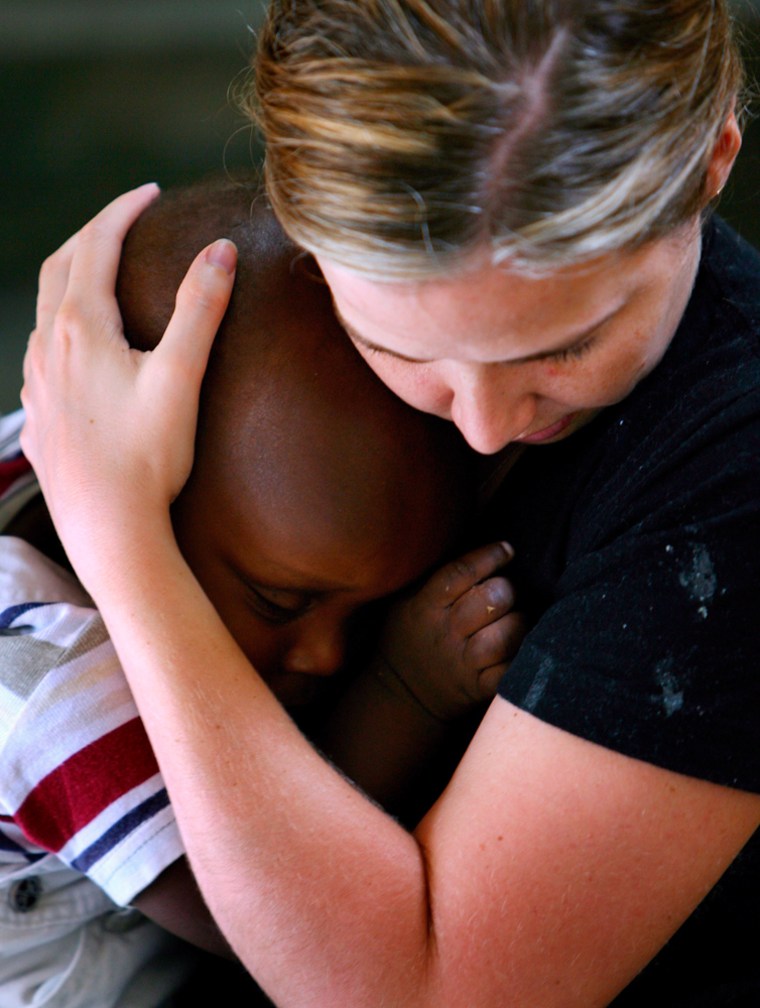I’ve never met Bill Gates. I have heard he is a tyrant in business negotiations and I resent the decades I’ve struggled with Microsoft operating systems. MSNBC.com, by the way, is a joint venture of Microsoft and NBC Universal.
But the man deserves the Nobel Prize, many prizes — sainthood, perhaps — for his global health programs. He also merits sympathy and support in the face of growing criticisms about the effectiveness of his giving.
Before the Bill & Melinda Gates Foundation took on the monumental challenge of solving the world's health problems, such efforts wallowed in hopelessness that aspired to spend a few million dollars here and there. Few dreamed there could be a reduction in the 10 million yearly child deaths worldwide from preventable infectious diseases.
From its inception, the Gates Foundation has committed an astounding $7.8 billion to global health causes alone.
The foundation’s massive generosity set an example that governments and charities have followed, with varying success. A group called the Global Fund to Fight AIDS, Tuberculosis and Malaria has pledged $8.6 billion, but raised about half that. President Bush’s Emergency Plan for AIDS Relief has pledged to spend $15 billion; Congress has so far allocated about $8.6 billion. Countless smaller, private philanthropies, supported by luminaries including former Presidents Jimmy Carter and Bill Clinton, rock star Bono, Brad Pitt and Angelina Jolie, are making their contributions. In the past few years, in large part because of Gates, global health has become very fashionable.
So what is the criticism?
“The organizations at the forefront of the global health movement are now undergoing both increasing outside scrutiny and internal soul-searching about what they are actually accomplishing,” Jon Cohen, a highly respected science journalist, wrote last year in the journal Science.
For example, the World Health Organization has aspired to have 3 million people in poor countries on the new, life-saving AIDS medications by 2005. In 2007, the number is closer to 2 million. For other diseases the measures of accomplishments are even worse.
Competing to solve the same problem
The problem is, it is no simple matter to rapidly and vastly increase spending for anything, especially an effort involving more than 50 poor countries around the world. Corruption and inefficient bureaucracies remain constant challenges. A 2006 World Bank report estimated that only half the money donated for health projects in sub-Saharan Africa makes it to hospitals and clinics, let alone patients.
Many countries in need of help face severe shortage of doctors, nurses and health workers to deliver whatever aid is offered. Even the countries that manage to train health workers see many migrate to jobs, even for menial tasks, in richer countries.
Often agencies compete with one another to solve the same problem, such as AIDS, malaria or TB. One estimate put the number of private groups working to fight AIDS in Tanzania alone at 60.
And since organizations tend to focus on specific diseases, they can inadvertently divert a country's resources, leaving residents less able to access care for more common conditions, such as diarrhea, which kills 2 million children a year.
Citing all these examples, Laurie Garrett, a journalist and senior fellow for global health at the Council on Foreign Relations, wrote recently in the journal Foreign Affairs that “there is grave danger that the current age of generosity could not only fall short of expectations, but actually make things worse on the ground.”
Finding the right balance The Gates Foundation is a work in progress.
Some of its money supports innovative research projects like trying to develop vaccines that require no refrigeration and no needles so they could be easily shipped and administered widely. The foundation also sets up private-public partnerships so pharmaceutical and biotechnology companies will find it profitable to develop and distribute new drugs and vaccines to the poor. Other efforts focus on providing access for treatments that can work now, such as available vaccines and the cheap oral rehydration solution that can prevent many of the diarrhea deaths.
“We can’t do everything and we’re always working to find the right balance of what we should be doing,” the foundation’s director for global health, Dr. Tadataka Yamada, told me recently.
The foundation will need to spend even more than it has been since Warren Buffett added $30 billion to the endowment. As a result, the opportunities — and the accompanying challenges — will only increase. At some point, the Gates Foundation may need to become part of an effort to strengthen the World Health Organization, now a very weak and politicized U.N. agency.
Someone needs to be in charge of all this giving.
Indeed, the foundation, as the leader of global health giving, may have to shift many paradigms. But it must and will because so many lives can be saved.
Hang in there, Bill.
